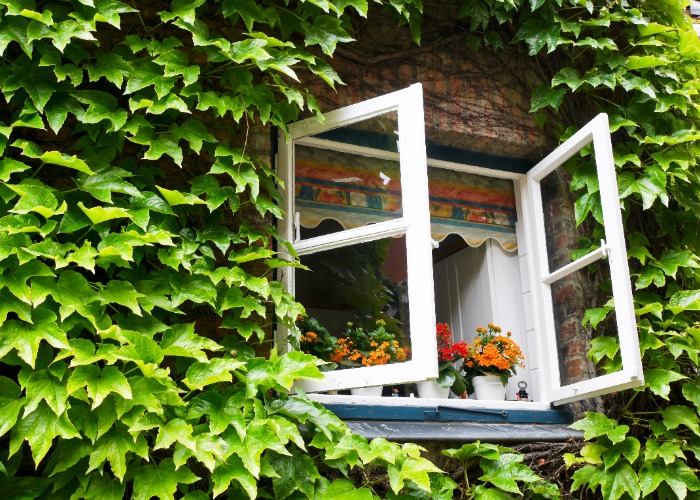Keeping your home secure: how burglars target your home & how to keep safe

As one insurer warns homeowners of a spike in break-ins, we reveal the steps you can take to keep your belongings safe.
Homeowners need to be more vigilant than usual as the nights draw in.
Analysis by Insurer Aviva of its customers' claims identified a 50% spike between September and November 2024 compared to the previous year.
Compare home insurance quotes at Confused.com
How burglars get access to your home
While most burglars enter a property through the front door, here are six less obvious ways that somebody could attempt to get into your home, according to locksmiths Keys 4 U.
Burglary hotspots UK: the towns and places with the most break-ins
From above
Whilst doors and windows are obvious access points for burglars, lofts and areas above the ceiling are also a means of gaining access.
Flats are particularly at risk as these spaces may not be compartmentalised to each home, making it easier for intruders to break into properties.
Through a wall
External walls are usually robust enough to keep burglars out, but separating walls in flats and houses may be weaker and be an easy entry point for somebody looking to access your home and belongings.
Through the letterbox
A locked door can still assist a burglar in getting into your property if your letterbox is not secured.
Specialist tools can allow intruders to unlock door hatches from outside the door, while a glimpse through the letterbox can reveal valuables and sets of keys that might be nearby.
What’s more, if they see a big pile of letters, they’ll know no one has been in for a while.
A simple way to prevent this from happening is by fitting a draft excluder or cage to your letterbox.
Using your tools
Garden sheds and garages are often overlooked when it comes to securing doors and windows of the property, but they contain items that could help a potential burglar enter your home.
Not only do you want to protect any valuables in your shed, but things such as heavy tools and ladders can help an intruder force their way into the house, and so they should be locked away whenever you aren’t using them.
Hiding outside
While most break-ins are opportunistic, some burglars prefer to observe and gather information before attempting to get inside.
Unkempt gardens can provide an ideal spot for anybody looking to watch a property without being seen, so it is best to keep tall hedges trimmed and install outside lighting where possible.
What’s more, an unkempt lawn could be a sign the house has been empty for a while, especially in the warmer months.
Compare home insurance quotes at Confused.com
Through your social media
Thanks to social media, a potential burglar doesn’t necessarily need to be nearby to see when you’re out and about.
A study by Swinton Insurance found that those who posted photos of their holiday online while they were away are more likely to have their home broken into than those who don’t.
The company recommends saving any social media posts about your holiday until you have arrived back at home and changing your privacy settings to ensure only close friends and family members can view your online activity.
People who decide against putting security measures in place to protect their homes are five times more likely to be the victims of burglary than those who do, according to the Home Office.
Measures also need to be taken to put you in the best possible position in the instance that you do get burgled — read our home insurance tips to make sure you and your belongings are covered.
Online commenting: how you may be revealing too much about yourself
How to keep your home safe from burglars
Insurer Aviva teamed up with former burglar Michael Fraser to share tips on how to better protect our homes, which we've included below:
Be careful about what you have on show
Don’t be tempted to display expensive items through your windows.
If you have more than one lock on your door, use them
Burglars can get a sense of how easily a door will open by simply pushing a foot against it. Aviva research suggests almost a quarter (23%) of people with double locks don’t always use both.
Remember that your home is a reflection of your attitude to security
If you don’t have window locks or alarms, you might look like an easy target.
Use a cage on your letterbox
This can prevent people from getting items such as keys, by fishing through your letterbox using a pole.
Similarly, don’t leave keys near your external doors, particularly on easily accessible surfaces, such as a hall table. Keep them hidden away where there’s no easy access.
Be mindful that people don’t need to be near your home to check out its security levels. Online street maps allow burglars to view your home from the comfort of theirs.
Know that burglars can often spot a fake or disused alarm box
For example, if it’s dirty and therefore not being serviced, or doesn’t have connections running into the box. A cat or dog at the home might also suggest that a burglar alarm isn’t being used, as they could trigger it.
Make sure your upstairs levels are protected
Nearly a quarter of UK residents have left upstairs windows open when going out, but even a little gap can allow someone to get in. Also, if you have a burglar alarm, make sure you use it upstairs too – many residents turn on just the downstairs alarms.
Consider getting a gate if there’s scope to put one on your property
If you have one already, make sure you shut it. This can act as an important psychological barrier to deter burglars, as well as a physical one.
*This article contains affiliate links, which means we may receive a commission on any sales of products or services we write about. This article was written completely independently.
Comments
Be the first to comment
Do you want to comment on this article? You need to be signed in for this feature
